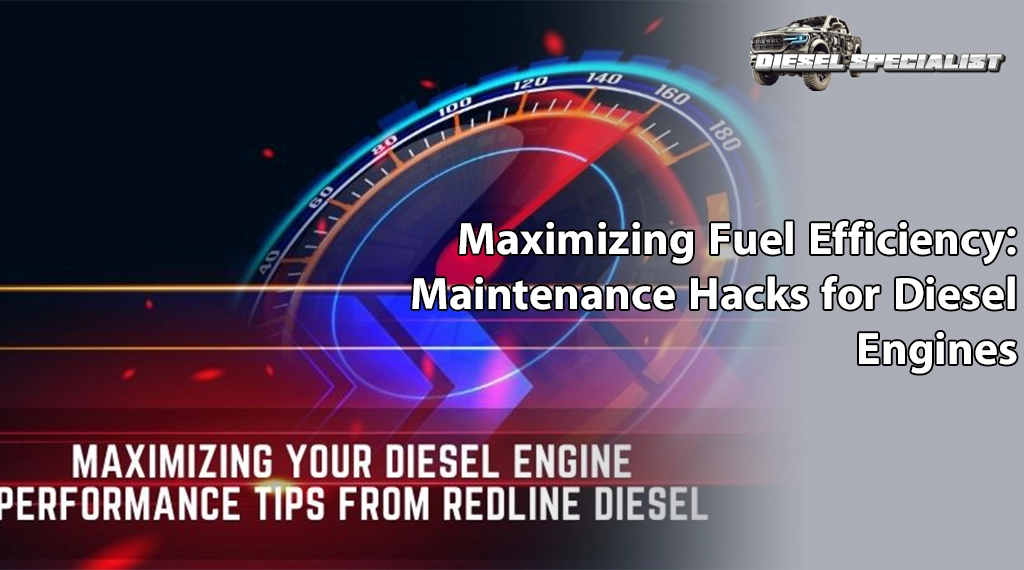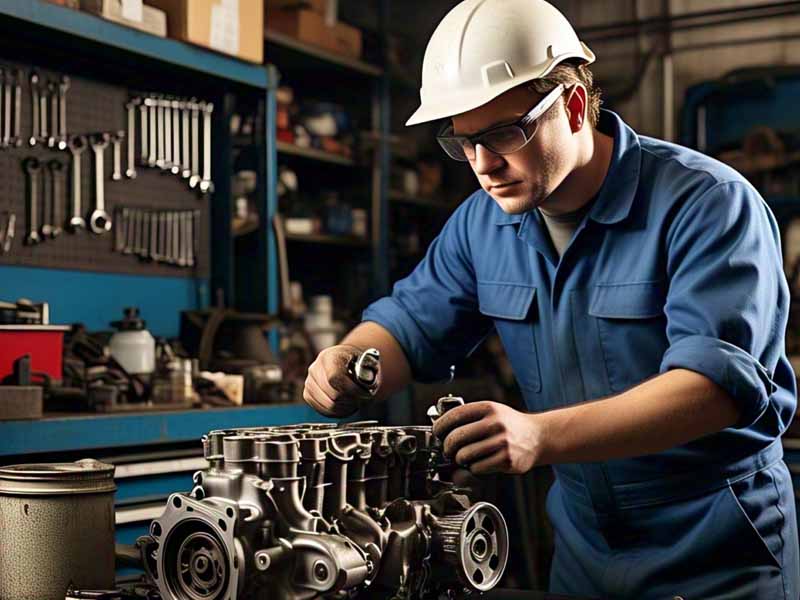Diesel Specialists – Maximizing Fuel Efficiency is crucial for diesel engine owners looking to reduce operational costs and extend engine life. Whether you manage a fleet or drive a personal vehicle, proper maintenance can significantly improve fuel consumption and overall performance. In this article, we share essential maintenance hacks to help maximize fuel efficiency for diesel engines.
Table of Contents
- Why Fuel Efficiency Matters for Diesel Engines
- Key Factors Affecting Diesel Fuel Efficiency
- Essential Maintenance Hacks for Improved Performance
- Common Mistakes That Reduce Fuel Efficiency
- Monitoring and Diagnostic Tools for Better Fuel Management
- How Routine Maintenance Extends Engine Lifespan
1. Why Fuel Efficiency Matters for Diesel Engines
Fuel efficiency directly impacts operational costs and environmental performance. With rising fuel prices, diesel engine owners must focus on optimizing fuel use to remain competitive and reduce carbon footprints. Efficient engines also perform better, experience fewer breakdowns, and contribute to long-term savings.
Key Benefits of Fuel Efficiency:
- Lower operational costs
- Reduced emissions and environmental impact
- Prolonged engine lifespan
READ MORE : Sustainable Finance: Unlocking Green Investments for a Stronger Future
2. Key Factors Affecting Diesel Fuel Efficiency
Several factors can influence the fuel efficiency of diesel engines. Understanding these factors helps you take preventive measures to optimize performance.
Primary Influences:
- Engine condition and age
- Fuel quality and type
- Driving habits and load weight
- Tire pressure and alignment
- Air filter cleanliness
3. Essential Maintenance Hacks for Improved Performance
Improving fuel efficiency doesn’t require extensive modifications. Small, consistent maintenance practices can lead to noticeable savings.
1. Regular Oil Changes
High-quality, clean oil reduces friction within the engine, enhancing performance and fuel economy. Use manufacturer-recommended oil grades and adhere to service intervals.
2. Keep Air Filters Clean
Dirty air filters restrict airflow, forcing the engine to work harder and consume more fuel. Regularly inspect and replace air filters to maintain optimal airflow.
3. Monitor Tire Pressure
Under-inflated tires increase rolling resistance, reducing fuel efficiency. Ensure tire pressure is at the recommended level to improve mileage.
4. Inspect Fuel Injectors
Faulty fuel injectors can cause poor combustion and increased fuel consumption. Regular inspections and cleanings prevent clogging and ensure efficient fuel delivery.
5. Reduce Excess Weight
Carrying unnecessary weight strains the engine, increasing fuel consumption. Regularly assess and remove excess items from vehicles or equipment.
4. Common Mistakes That Reduce Fuel Efficiency
Avoiding common pitfalls can safeguard fuel efficiency and prevent costly repairs.
Mistakes to Watch For:
- Ignoring check engine lights
- Delaying maintenance and repairs
- Overloading vehicles beyond recommended capacity
- Aggressive driving and rapid acceleration
5. Monitoring and Diagnostic Tools for Better Fuel Management
Advanced diagnostic tools and monitoring systems provide real-time data on engine performance and fuel consumption. Leveraging these tools can help identify inefficiencies and optimize maintenance schedules.
Recommended Tools:
- On-board diagnostics (OBD) scanners
- Fuel consumption trackers
- GPS systems for route optimization
6. How Routine Maintenance Extends Engine Lifespan
Routine maintenance not only enhances fuel efficiency but also ensures the longevity of diesel engines. Regular inspections, timely repairs, and consistent servicing prevent minor issues from escalating into costly problems.
Long-Term Benefits:
- Improved engine performance
- Reduced risk of breakdowns
- Enhanced resale value
Conclusion
Maximizing fuel efficiency through diligent maintenance practices is essential for diesel engine longevity and cost savings. By implementing these simple yet effective hacks, diesel engine owners can ensure better performance, lower emissions, and greater overall efficiency.



